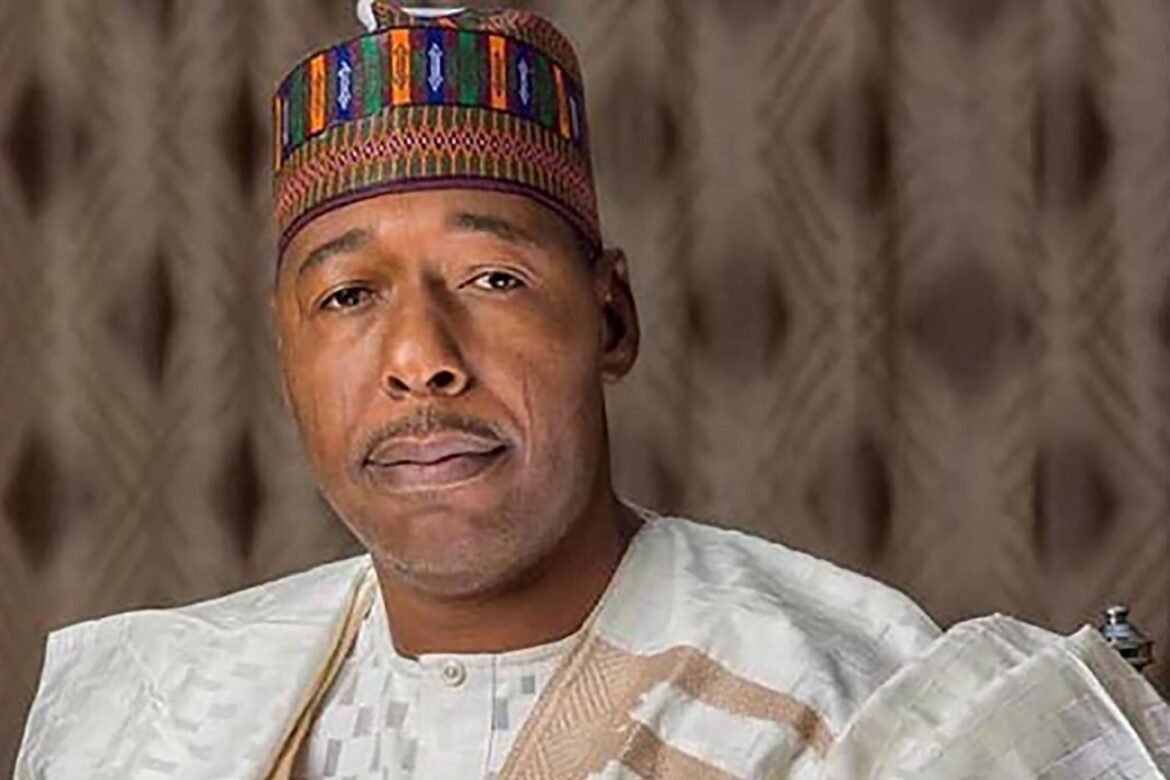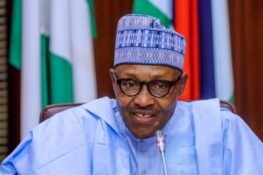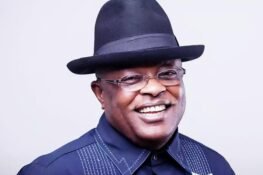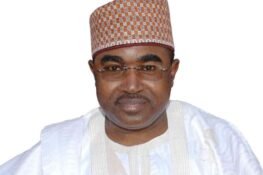From security, policy documents to legal opinions, most presidents spend half of their time reading one report after another.
Sometimes, the exact same report is sent back and forth seeking the input of one person or the other.
As President Muhammadu Buhari has himself confessed, he is a slow reader.
That should be a perfect excuse for why he doesn’t venture much out of the presidential villa.
Yet, nothing reassures distressed citizens like the presence a leader in their most trying times.
On several occasions, Buhari’s absence from conflict areas and states that have been afflicted by calamity have made him appear detached from the needs of the people.
And in early February after a gruesome attack on travelers by Boko Haram just outside Maiduguri, a number of residents got the opportunity to express their disapproval towards the president.
On February 12, residents of Maiduguri lined the streets of the city to welcome the president who was there on a condolence visit after the attack that left at least 30 travelers dead.
Whether it was planned by political opponents or a spontaneous reaction to a president seen to be aloof, the supposed welcoming party on streets booed and jeered and the president.
This was in a city that has been at the heart of the president’s political and development agenda.
So what went wrong?
There are an estimated 3.3 million Internally Displaced Persons in Nigeria.
It is hard to understand why the government will choose to release and reward mass murderers and abandon the victims
Of that number, 2.5 million of them fled their homes and communities in fear of terror in the northeastern part of country.
At least 1.4 million of the displaced persons are in Borno.
That is more than the entire population of Bayelsa.
And in Borno alone, there are 32 IDP camps with half of them in Maiduguri and the remaining 16 scattered around the state.
The camps were meant to provide temporary shelter for displaced people.
But they are taking permanent form.
Many of the displaced are eyewitnesses to the violence perpetrated by Boko Haram and have even lost family members to attacks by the terror group.
And while many of these victims are living in squalour, the National Assembly wants to reward the terrorists who inflicted lifelong injuries on them with the passing of a ‘Bill for the Establishment of the National Agency for the Education, Rehabilitation, De-radicalisation and Integration of Repentant Insurgents in Nigeria and for Other Connected Purposes’.
It is hard to understand why the government will choose to release and reward mass murderers and abandon the victims.
If people who had committed the worst of crimes can be set free, then no one should be in prison or prosecuted in Nigeria.
And if this isn’t what injustice looks like, it will be hard to say what is.
Borno State governor, Prof. Babagana Zulum, was elected to his seat during an entirely new phase in the war against Boko Haram.
Ultimately, he may have the same objectives as President Buhari in wanting to end insurgent attacks in the northeast.
But he has different governing style from the president and his relationship with the Nigerian military had not been seamless.
First, he wants to be everywhere and literally govern from the field.
That was exactly what he was doing in early January during a visit to Maiduguri-Damaturu highway when he publicly scolded military personnel for allegedly extorting travelers.
Without meaning to, Zulum portrayed the soldiers seeking to protect the people from terrorist attacks as the oppressors.
But the incident also damaged the governor’s image.
To publicly castigate the military created the impression that Zulum lacked the temperament to be governor.
But the governor’s choice of governing in the open and in full glare of the media is bringing into focus, the changing nature of the conflict in the northeast and fact the challenges in the region are entering an entirely new phase.
If people who had committed the worst of crimes can be set free, then no one should be in prison or prosecuted in Nigeria
Back in October 2017, there were media reports that World Bank president, Jim Yong Kim, said the bank was focusing most of its programmes in Nigeria on the northeastern part of the country as had been requested by the Nigerian president.
The media outlet that first reported the news however conveniently left out east in northeast, saying the attention Buhari wanted paid to in development programmes was on the north.
In the divided politics of Nigeria, it took on a whole new meaning about the agenda of the Buhari presidency.
It was the defence that came from Oby Ezekwesili, former Vice President of the World Bank and one time education minister who insisted it was normal for the bank to focus on reconstruction in post-conflict zones, which helped douse tensions.
Still, story showed the extent the president was going to rebuild the northeast by enlisting international institutions into his agenda.
But Buhari was looking to rebuild to northeast in different ways and it started right from the moment he was sworn-in as president.
Of the top five most strategic political appointments he had, virtually all were to individuals from the northeast.
Starting from the Secretary to the Government of the Federation, his Chief of Staff, the National Security Adviser, the Chief of Army Staff and to the Chief of Air Staff.
Added to the list was the president’s wish to have Ahmad Lawan elected as Senate President, which didn’t exactly work out back in 2015.
It is clear that this was deliberate.
But the appointments made by the president didn’t necessarily translate to positive change on the ground in the lives of the people in the region, sometimes because the appointees had misplaced priorities.
Babachir Lawal, the sacked SGF for example felt it was worth spending N300m cutting grass.
Only time will tell whether the choice of concentrating a lot of energy and resources to the region and trusting that the men he handpicked would best serve the interest of the northeast.
As at today, even with the establishment of the Northeast Development Commission, the lives of millions of people in the region are still in tatters and they are living in camps and as squatters.
It’s a problem Governor Zulum has brought to the open.
Without meaning to, Zulum portrayed the soldiers seeking to protect the people from terrorist attacks as the oppressors
Billions of naira have been spent to meet the everyday needs of displaced persons both from international aid agencies and from the federal budget.
Billions more are being spent by the state government.
Usually it is just on paper.
But Governor Zulum wants the country to witness where the money is going.
And he is achieving his goal just by showing up at IDP camps and personally assisting in the distribution of aid materials, all with media coverage.
At the same time, maybe unintentionally, the governor is making obvious a very vexing problem.
How do you rebuild a lives of millions of people when they are all stuck in IDP camps?
How long do the federal and state governments intend to keep the camps open?
Can anybody life ever go back to normal without a proper structure or home?
The reality is that some may never be able to rebuild their lives.
Many of the children will never set foot in a school again.
But for so many more, the government can make it possible for them to rebuild their lives.
That cannot happen if they remain inside the camps.
There is also a secondary issue which is the hundreds of communities and villages that have been left inhabited by the Boko Haram insurgence in Borno and other northeastern state.
It will eventually lead to loss of identity by the people who made these communities.
Some of the local governments in Borno are effectively under military rule.
And in between, there is a lot of ungoverned space.
It is only a matter of time before there is a total breakdown of all administrative structures in the local governments of Borno, Yobe and the other northeastern states ravaged by terror.
For over two years now, the federal government has been telling anyone who cares to listen that Boko Haram has been technically defeated.
There is no better way to demonstrate this than to rebuild communities and lives in the region.
As long as millions are living in IDP camps with no end in sight, it serves as a reminder that there is an ongoing and intractable crisis in the region.








